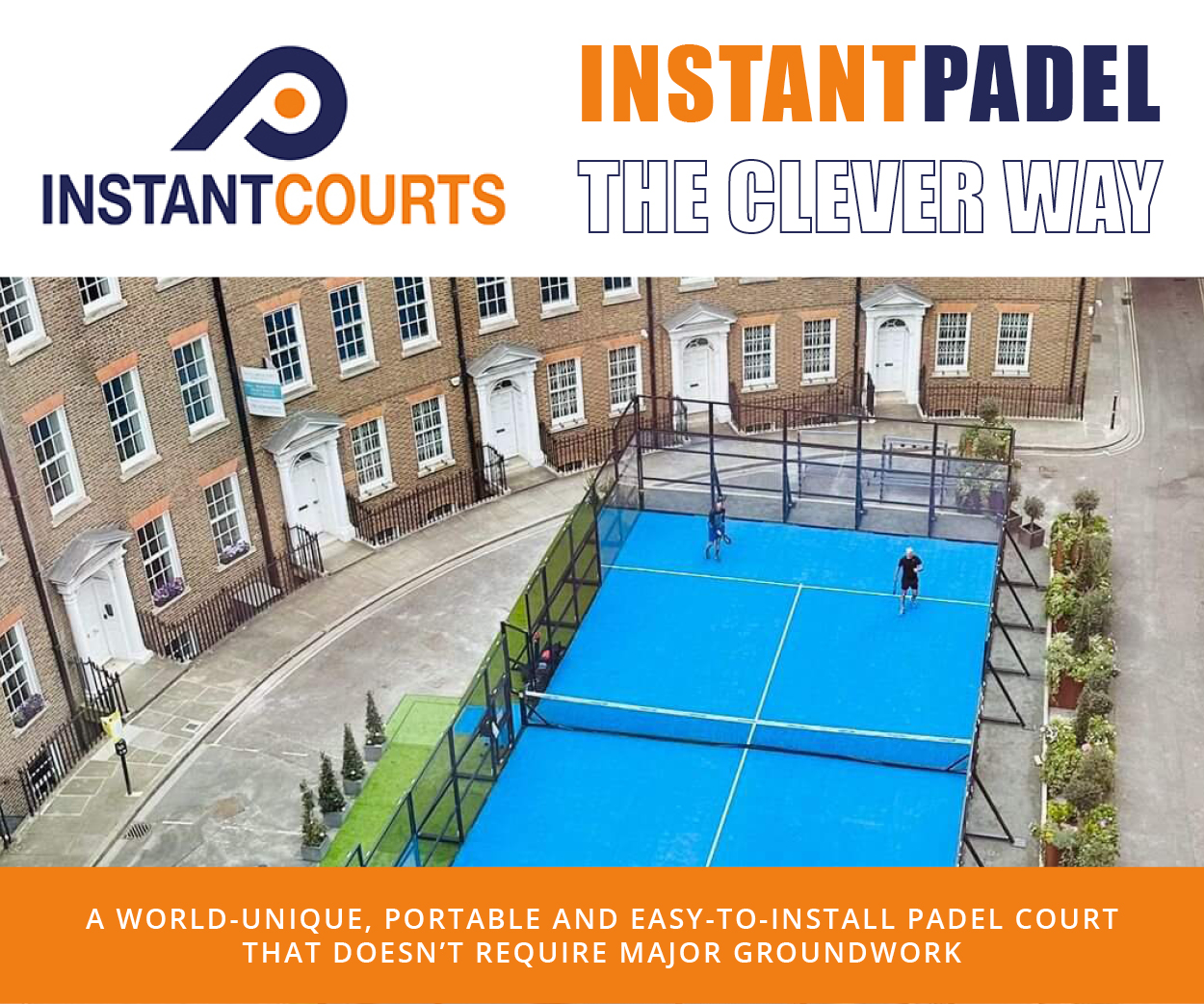The UK’s biggest padel venue (so far!) opens its doors on Friday – and founder Sebastian Gordon can’t wait to show off its “unique recipe” of features to the denizens of Bristol.
The 14-court venue (12 panoramic doubles and two singles) is the first club opened in the UK by Rocket Padel, who have sold their suite of clubs in Sweden and Norway to focus solely on the UK market.
Founded by Gordon and long-time business partner Fredrik Kristensson together with Carl-Henric Heimdal, Rocket Padel are planning a further club opening before the year is out in south London, before executing “big plans” for “at least 20” further clubs across the country.
For now, they’re focusing on Friday’s glitzy opening in Bristol, which will be attended by the Mayor of Bristol, the GB padel team and Sandy Farquharson from The Padel School.
The club boasts 10m+ ceiling height, air conditioning throughout, bar and bistro, spectator areas, heated changing rooms, optional music on all courts, Sky Sports, free parking and an extensive pro shop stocking Rocket Padel’s own merchandise. Marcus Ballyn, highly experienced in the fitness industry, will be general manager.
A long corridor down the middle of the courts will allow players to watch other matches and socialise. “For me, that’s what padel is all about – socialising,” Rocket Padel’s co-founder and entrepreneur Gordon told The Padel Paper.

“In the UK, if you’re going to build an indoor sport, you have to first of all make it nice to hang out in the club. That’s why, when we look at a new premises, we don’t look at how many courts can we fit in, we start with the social area. We could have squeezed 17 courts into our Bristol site, but we wanted the 14 courts to be a top-class venue to hang out in.”
The opening confirms Bristol as the UK’s second biggest padel hotspot behind London. We Are Padel and Surge have opened large clubs in the city in recent months and Padel4All has a four-court centre in the Lockleaze area of the city.
Gordon isn’t worried about the same kind of market over-saturation that he experienced in Sweden. He said: “I think it’s super positive that Bristol now has many padel clubs. I’m not scared, just very excited. We’re talking about a city of nearly 500,000 inhabitants. All the talk in town is going to be about padel!
“We are also very proud of our product. We’ve put all our experience into this club and learned from our mistakes (because we’ve made a ton of them!). We’ve had seven years in the industry, we’ve taken everything we like, squeezed it into our recipe and branded it Rocket Padel. We’ll see what we spit out on Friday!”

Rocket Padel had eight clubs in Sweden including what was, at one stage, the biggest club in the world, as well as two in Norway. They also opened 15 padel merchandise stores (“That was a terrible idea!” laughs Gordon).
Fuelled by lockdown rules (which forced gyms to close but permitted padel), the relative ease of getting permits and entrepreneurial spirit, padel boomed during the pandemic in Sweden. It was claimed Sweden had 700,000 padel players out of a population of 10 million. It didn’t last. The Swedish scene has now decreased to less bloated levels.
“The UK right now feels like it was in Sweden back in 2018 before the pandemic,” states Gordon. “It’s the same type of feeling. People are super excited and there are nice venues creating communities that really love the sport.
“I really think Rocket Padel had a good thing going on in Sweden before the market decreased. Coming to the UK feels like a little bit of a second chance.
“I’m certain the same decrease won’t happen in the UK. People have learned from Sweden’s experience. It was a mix of coincidences and circumstances. The UK is going to produce the same kind of growth, but it’s not as easy to get permits here, so it will happen in a more sensible way.”
Gordon and Kristensson have been business partners 15 years. They founded several companies in the realm of e-commerce before working on a multinational beauty line, Swiss Clinic.
Their move into padel started with a frightening incident in Hong King in 2017. Overworked and stressed, Gordon was in a hotel with his wife and four children and woke up in the middle of the night in tears. Perplexed, he flew home and went to the doctor.
“The doctor told me there was nothing wrong with me. I was super healthy, but I felt terrible. He said I’d suffered a burnout,” he recalls.
Gordon decided to take a few months off. On day three of this intended recuperation, he went to play padel. “I thought, this is super fun!” he remembers. “I had all this time and I soon got super hooked. I started playing five times a week. Then I thought, ‘We should open up a club!’”
Two months later, Gordon and his father, a builder, started constructing a padel club. “I was ‘all in’ – I was back to work again!” he chuckles. The club was a great success and soon the Rocket Padel empire was born.

Gordon and Kristensen are ‘all in’ once again on British shores – and opening the biggest club in the UK is certainly a good way to announce their arrival in a new country.
“It might generate a bit of interest, but, honestly, it wasn’t important for us to be the biggest club,” Gordon states. “Ultimately, we need another 100 clubs like this all over the UK. If we can be the guys who ‘break the glass’ so that someone else opens up 14 courts in Leeds or Liverpool, I’ll be super happy because it will help the sport grow.
“From my perspective, two-court facilities on the side of golf clubs or whatever will never become ‘a club’. You need eight courts, minimum, in big cities to generate that community. That’s what we’re trying to do.”
He adds: “Our dream now is to achieve success in a big country. You can just smell it when you go to the UK – the challenges are bigger. There are more problems, but also more opportunity.”










































